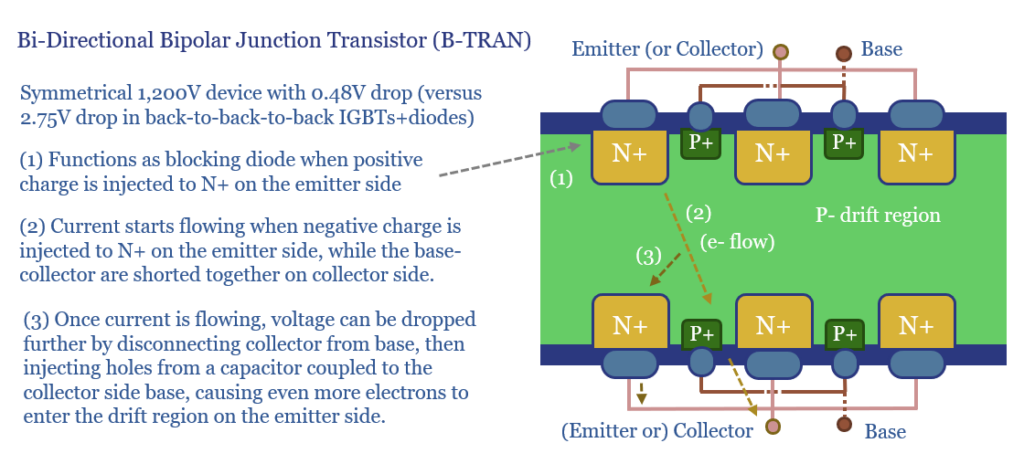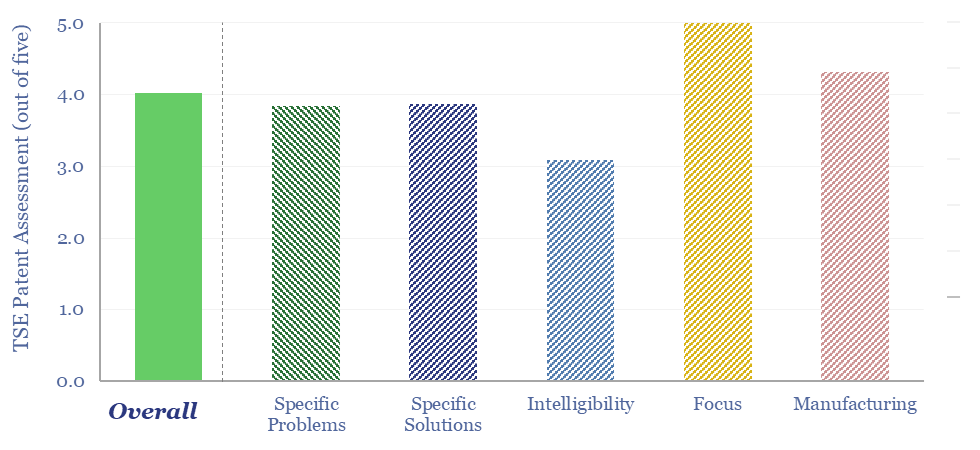Bi-Directional Bipolar Junction Transistors are an emerging category of semiconductor-based switching device, that can achieve lower on-state voltage drops than MOSFETs and softer, faster switching than IGBTs, to improve efficiency and lower component count in bi-directional power converters. This data-file screens B-TRAN patents from Ideal Power.
LFP batteries are 20% lower-cost than NMC, and as low as $50-60/kWh in China in 2024, per our recent research note into the rise of LFP. But they are also 15% less energy-dense, which reduces the range of electric vehicles. So could range be restored by improving electronics?
Ideal Power is a small-cap US company, commercializing bi-directional junction transistors (B-TRANs), with ultra-low voltage drops in their on-state (better than a MOSFET) and soft-switching even amidst rapid switching (better than IGBTs). The company states that this could improve electric vehicle efficiency by 7-10%.
Ideal Power’s patent library was high-quality, based on using the usual criteria in our patent-based technology assessments, with over 60 Patent Families in EspaceNet, mostly optimizing the performance of BTRANs, securing a moat around the technology.
Several patents specifically addressed the optimization of these devices, challenges that have been encountered and overcome, and the manufacturing of double-sided semiconductors, in an industry that has historically only fabricated components on the front side of chips.
How does a bi-directional bipolar junction transistor work? We have pieced together the diagram below from Ideal Power’s disclosures.

Key challenges that stood out to us, with Ideal Power’s bi-directional bipolar junction transistors, are noted in the data-file.
For helpful background into how semiconductors work, which may be useful context alongside this review, please see our overview of semiconductor physics.
